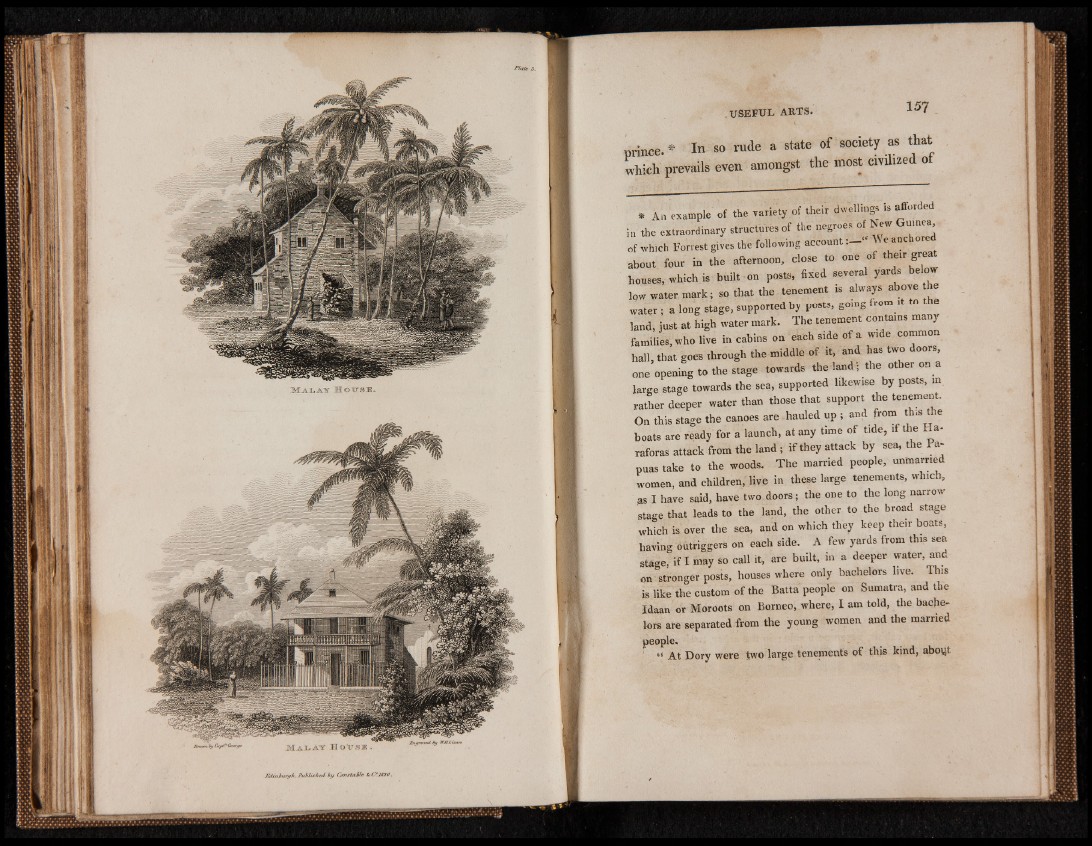
prince. * In so rode a state of society as that
which prevails even amongst the most civilized o
* An example of the variety of their dwellings is afforded
in the extraordinary structures of the negroes of New Guinea
of which Forrest gives the following a c c o u n t We anchored
about four in the afternoon, close to one of * « 8« *
houses, which is built -on posts, fixed several yards below
l0w water mark; so that the tenement is always above the
water ; a long stage, supported by posts, going rom 1 o
land, just at high water mark. The tenement contains many
families, who live in cabins on each side of a wide common
hall, that goes through the middle of it, and has two doors,
o n e opening to the stage towards the land; the other on a
large stage towards the sea, supported likewise by posts, m
rather deeper water than those that support the tenement.
On this stage the canoes are hauled up ; and from this the
boats are ready for a launch, at any time of tide, if the Ha-
raforas attack from the lan d ; if they attack by sea, the Pa-
puas take to the woods. The married people, unmarried
women, and children, live in these large tenements, which,
as I have said, have two doors; the one to the long narrow
stao-e that leads to the land, the other to the broad stage
which is over the sea, and on which they keep their boats,
having outriggers on each side. A few yards from this sea
stage, if I may so call it, are built, in a deeper water, and
on stronger posts, houses where only bachelors live. This
is like the custom of the Batta people on Sumatra, and the
Idaan or Moroots on Borneo, where, I am told, the bachelors
are separated from the young women and the married
people. .
; “ At Dory were two large tenements of this kind, about